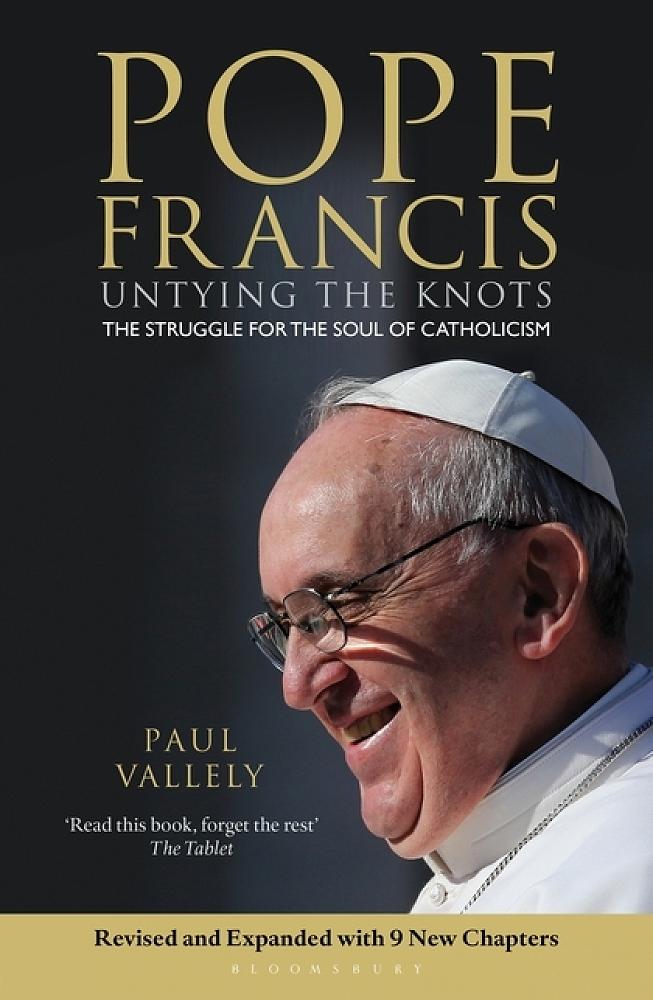
Pope Francis: Untying the Knots – The Struggle for the Soul of Catholicism
By Paul Vallely. Published by Bloomsbury. Reviewed by Dennis Horton
On March 13, it will be five years since Jorge Mario Bergoglio became pope, chosen by his own admission “from the other side of the world”, the first Jesuit and Latin American to be elected. A bishop from the slums of Buenos Aires.
Half a decade on, we have grown used to being surprised by a pontiff who wants a Church of the poor for the poor, who as cardinal in Argentina drove a small car or used public transport, who as a new pope carried his own bag and settled his own hotel bills, and who washed the feet of a refugee Muslim woman in a Holy Week liturgy.
Francis is clearly his own man, radiating from deep within a peace he has known from the moment he was elected. “For me, this was a sign that God wanted it,” he insists. But beneath the joy and tranquillity he shows in every encounter with ordinary people or with leaders from around the world, lie tensions which few in the pews might imagine.
Exposing the lines of some of the major pressures behind this extraordinary pontificate is the work of British journalist Paul Vallely. His first edition was published in 2013; the second, revised and expanded with nine new chapters, appeared in 2015. “Read this book, forget the rest,” says a quote on the front cover of the 470-page update, subtitled “The Struggle for the Soul of Catholicism.” The need for such an extensive revision after just two years gives a clue as to how rapidly Francis has set about the process of change. Yet there are those who feel that the rate has been too slow to be endured.
Major topics explored in this book include the pope’s efforts to reform the Vatican’s bank and financial systems, to change the Curia and the offices through which the Holy See does its business, the call from Vatican II to strengthen the role of bishops around the world in synod, supporting the pope in making pastoral decisions, to address the issue of sex abuse and Rome’s treatment of priests who abuse minors and bishops who must deal with clergy who offend in this way, and the Church’s options for recognising the equality of women while refusing to consider them eligible for ordination.
Of particular interest is Vallely’s skill in clarifying the background of this pope from Argentina, especially his years as a young Jesuit provincial in that country, his role as archbishop during Argentina’s Dirty War, and the period of exile that worked to transform an authoritarian conservative into a much freer and more merciful person. Here is a book that helps to explain why mercy is such a clue to understanding this pope who insists, above all, that he is a sinner who knows from his own experience what it means to be forgiven and made whole. Not an easy read, but well worth the effort to anyone seeking light on what it means to be a Catholic today.
Tui Motu Magazine. Issue 223, February 2018: 15.
